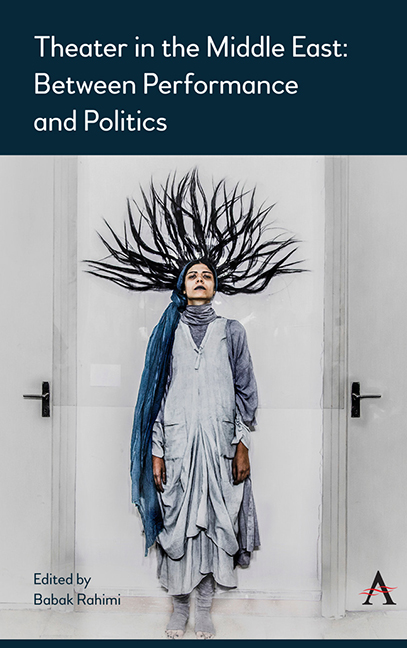Chapter 5 - Artistic Practice and Production at the Freedom Theatre: The Interpenetration of the Personal and the Political
Published online by Cambridge University Press: 04 February 2022
Summary
Introduction: Theater of Resistance in Palestine
Early on the morning of June 4, 2012, over twenty-five Israeli Army soldiers arrested Nabil AlRaee, artistic director of The Freedom Theatre (TFT). In front of his wife and two-year-old daughter they handcuffed, hooded and took him to an Israeli interrogation center. Held for six weeks without charge, the Military released AlRaee after the judicial system engaged in a bait and switch game, moving his case between military and civil courts. Born in Aroub Refugee Camp, which sits between Bethlehem and Hebron, AlRaee's family originated from Iraq Al-Manshiyya. Largely destroyed and depopulated in 1949, this village sits about 30 kilometers northeast of Gaza City, about a 30-minute drive from Aroub. In a moment of Kafka-like temporal irony, while being transferred between prisons, AlRaee saw through a military van window for the first time in his adult life a sign pointing to his family's former village, while handcuffed and in leg shackles.
During the battle of Jenin, in 2002, Israeli soldiers broke into the home of Faisal Abu al-Hayjaa, then 13 years old. Upon entering, one soldier ordered him outside, and as he complied, another soldier outside ordered him back in freezing him literally in the threshold of his front door. Ahmed Rokh, also from Jenin Camp and about the same age, crawled down into a crater, formerly a part of his family home, looking for something. In the aftermath of the Battle of Jenin, journalists gathered at the edge of the hole and asked, who are you looking for, a parent, a grandparent? “No, I am looking for my90 Xbox.” The journalists walked away, disinterested. Rokh tells this story to demonstrate that—while perhaps not obvious in the worst of circumstances, nevertheless remains true—children want to play. He also points out how this story reveals that mainstream media often focuses on competing narratives of victim status.
These events and images reveal the liminal space that Palestinians inhabit in so many aspects of their lives. They also offer an essential context for artistic and political aspirations held for many years at TFT: the experience of Palestinian refugees raised in the camps, where specific political, social and personal realities dominate, sometimes in stark contrast to the experience of other Palestinians.
- Type
- Chapter
- Information
- Theater in the Middle EastBetween Performance and Politics, pp. 89 - 114Publisher: Anthem PressPrint publication year: 2020

